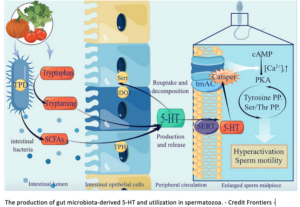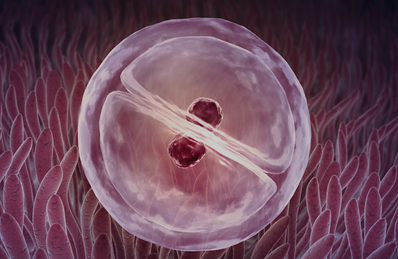Microbiome Matters: The Surprising Impact on Sperm Health
In recent years, scientific research has unveiled the profound interconnectedness of various bodily systems. One of the most groundbreaking discoveries is the gut to sperm axis, highlighting an unexpected link between a man’s gut microbiome and his reproductive health. This revelation not only expands our understanding of reproductive biology but also opens new avenues for addressing fertility issues and ensuring healthier offspring.
The Gut Microbiome: More Than Digestion
The gut microbiome, comprising trillions of bacteria in our digestive system, plays a crucial role in overall health. These microorganisms are essential for digestion, immune function, and even mental health. However, recent studies have shown that the gut microbiome’s influence extends far beyond these known functions.
A pivotal study led by Jamie Hackett at the European Molecular Biology Laboratory (EMBL) provided compelling evidence that alterations in the gut microbiome can significantly impact male reproductive health. This research, published in Nature, highlights how changes in the gut bacteria of male mice affect their sperm and, subsequently, their offspring. You can watch the video produced by EMBL here
Experimental Insights: Linking Gut Health to Sperm
Researchers conducted experiments on male mice, subjecting them to various perturbations of their gut microbiome, including antibiotics, dietary changes, and laxatives. These interventions disrupted the microbiome and led to notable changes in the sperm’s RNA profile. RNA, which plays a critical role in gene expression, was altered in a way that had consequential effects on the offspring.
The findings were startling. Mice with disrupted gut microbiomes produced offspring with lower birth weights and shorter lifespans. These effects were reversed when the father’s gut microbiome was restored, indicating that gut health directly impacts reproductive outcomes.
Mechanism of Action: How Does the Gut Influence Sperm?
The study’s most intriguing aspect is how the gut microbiome communicates with the male reproductive system. The research suggests that certain bacteria in the gut produce metabolites that can enter the bloodstream and reach the testes. These metabolites then interact with the sperm cells, altering their RNA and affecting their functionality.
This gut-sperm communication pathway is a novel discovery, suggesting that maintaining a healthy gut microbiome is crucial not just for digestion but also for reproductive health. The exact metabolites and mechanisms involved are still being studied, but the implications are profound.

Implications for Human Health
While the study was conducted on mice, the implications for human health are significant. If similar mechanisms exist in humans, it could transform our approach to male fertility and reproductive health. Infertility affects millions of couples worldwide, and understanding the gut to sperm axis could lead to new treatments and preventive strategies.
Managing gut health through diet, probiotics, and antibiotics could become a critical component of fertility treatments. Furthermore, this discovery could lead to personalized medicine approaches, where an individual’s gut microbiome is analyzed and modified to improve reproductive outcomes.
Future Research and Potential Applications
The gut to sperm axis is a burgeoning field, and further research is needed to confirm these findings in humans. Future studies will likely explore the specific bacterial strains and metabolites involved, their precise mechanisms of action, and how these can be manipulated to enhance reproductive health.
Potential applications of this research are vast. For instance, in vitro fertilization (IVF) treatments could incorporate gut microbiome analysis and modification as part of the protocol. Additionally, lifestyle and dietary recommendations for men could be tailored to support both gut and reproductive health, potentially improving fertility rates and offspring health outcomes.
Conclusion
The discovery of the gut to sperm axis represents a significant leap in our understanding of reproductive biology. It underscores the importance of the gut microbiome in overall health and highlights a previously unrecognized pathway influencing male fertility. As research progresses, this knowledge could revolutionize fertility treatments and preventive health strategies, offering new hope to many couples seeking to start a family.
By maintaining a healthy gut through balanced diets and possibly probiotics, men may enhance their reproductive health and contribute to healthier future generations. This research serves as a reminder of the intricate and interconnected nature of our bodily systems and the importance of holistic approaches to health and wellness.
“`


